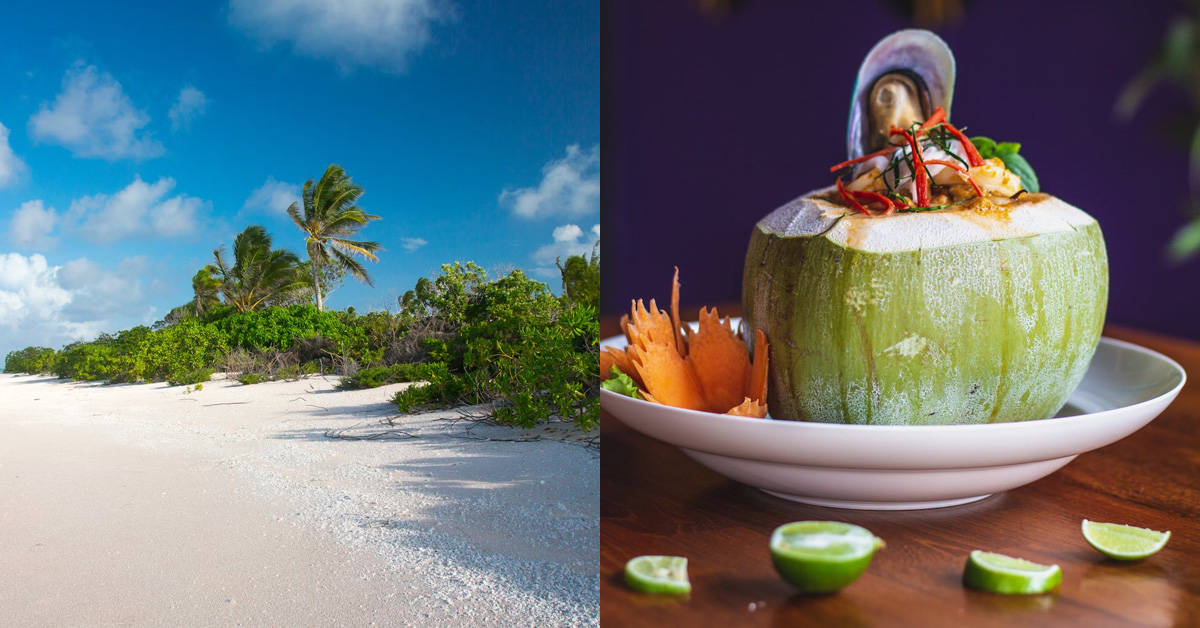Marshallese cuisine is a unique blend of traditional Pacific Islander flavors and modern influences. The Marshall Islands, located in the central Pacific Ocean, have a rich culinary history that has been shaped by the island’s geography, climate, and cultural traditions.
The cuisine is characterized by its use of fresh seafood, coconut, taro, breadfruit, and other local ingredients. Marshallese food is known for its bold and flavorful dishes that are often prepared using traditional cooking methods such as grilling, baking, and steaming.
Marshallese cuisine halal or not?
Is Marshallese food halal?
Marshallese cuisine is not typically halal as it includes pork and other non-halal meats. However, there may be some dishes that are halal-friendly, such as seafood-based dishes.
It is best to check with the restaurant or cook to confirm the ingredients and preparation methods used in the dish.
What kind of food do Marshallese eat?
Marshallese cuisine is based on the traditional diet of the Marshall Islands, which consists mainly of fish, coconut, breadfruit, taro, and other root vegetables. Some popular dishes include:
- Ika (raw fish) – a dish made with fresh fish marinated in lime juice and coconut milk.
- Lobster – a popular seafood dish that is often grilled or boiled.
- Poke – a salad made with raw fish, onions, and other vegetables.
- Coconut crab – a delicacy that is often boiled or grilled.
- Rice – a staple food that is often served with fish or other dishes.
- Breadfruit – a starchy fruit that is often boiled or roasted.
- Taro – a root vegetable that is often boiled or mashed.
- Coconut milk – a common ingredient used in many dishes, including soups and stews.
- Banana – a fruit that is often used in desserts and sweet dishes.
- Cassava – a root vegetable that is often boiled or fried.
How can you tell if the food is halal in Marshall Islands?
Since the Marshall Islands is a predominantly Christian country, it may be challenging to find halal food. However, some restaurants may offer halal options, especially those that cater to tourists or have a significant Muslim population.
You can also look for halal certification logos or ask the restaurant staff if they serve halal food. If you are unsure, it is best to avoid meat dishes and stick to vegetarian options.
Is it hard to find halal food in Marshall Islands?
It may be difficult to find halal food in Marshall Islands as the majority of the population is Christian and the concept of halal food is not widely understood or practiced.
However, some restaurants and grocery stores may offer halal options, and it is recommended to inquire with locals or do research beforehand.
Is Marshallese food healthy?
Marshallese cuisine is generally considered healthy as it is based on fresh seafood, root vegetables, and fruits. Traditional dishes often include fish, taro, breadfruit, coconut, and pandanus.
These ingredients are rich in vitamins, minerals, and fiber, and are low in fat and calories. However, modern Marshallese cuisine has been influenced by Western fast food and processed foods, which can be less healthy.
What is Marshallese food similar to?
Marshallese food is similar to other Pacific Islander cuisines, such as Hawaiian, Samoan, Niuean and Tongan. It often includes seafood, coconut, taro, breadfruit, and other tropical fruits and vegetables.
Some dishes may also be influenced by Asian and American cuisine due to the country’s history of colonization and trade.
Steps to find halal food in Marshall Islands
Here are some general steps that can be taken to find halal food in any location:
- Research online: Look for halal restaurants or grocery stores in Marshall Islands through online search engines or social media platforms.
- Ask locals: Ask the locals or Muslim community in Marshall Islands for recommendations on where to find halal food.
- Check with hotels: If you are staying at a hotel, check with the hotel staff if they offer halal food or if they can recommend any nearby halal restaurants.
- Look for halal certification: Look for halal certification logos or signs at restaurants or grocery stores to ensure that the food is halal.
- Bring your own food: If you are unable to find halal food, consider bringing your own food or snacks that are halal-certified.

